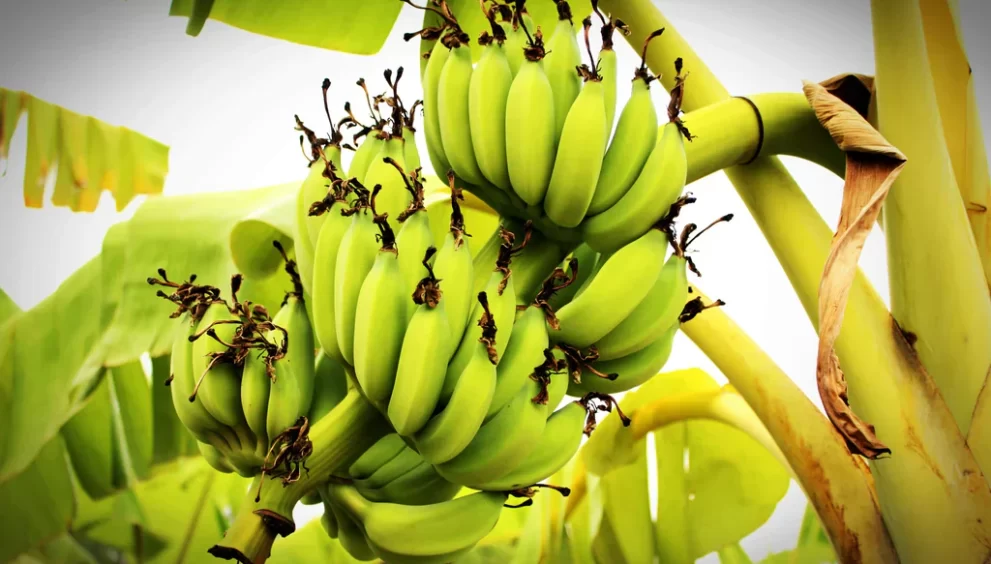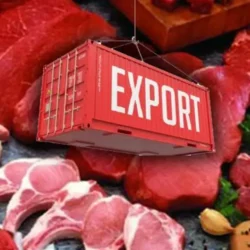Pretoria – Social media was abuzz this week with claims of a South African ban on Tanzanian agricultural products, sending ripples of concern through the region. However, investigations reveal the tempest in a teacup centres on a fruit that barely registers in South Africa’s import statistics: the humble banana.
Despite the online furore, authorities in Pretoria have unequivocally stated that no blanket ban on Tanzanian agricultural imports exists. The real bone of contention, it appears, is the limited entry of Tanzanian bananas into the South African market.
For over two decades, South Africa has not been a significant consumer of Tanzanian bananas. Instead, the lion’s share of the R900 million annual banana imports comes from Mozambique (74%) and eSwatini (19%), with smaller contributions from the Seychelles, Zimbabwe, and other Southern African nations.
The reasons behind Tanzania’s marginal presence in this market remain unclear. While phytosanitary regulations could be a factor, some suspect a lack of aggressive marketing by Tanzanian producers to cultivate a South African customer base. As one observer noted, collaborative efforts between the two nations could likely resolve any legitimate plant health concerns.
However, this seemingly minor banana bottleneck has triggered a dramatic response from across the border. Tanzania’s agriculture minister, Hussein Bashe, has reportedly threatened to retaliate by blocking South African products if the perceived restrictions are not lifted.
This reaction appears disproportionate, considering the negligible volume of Tanzanian bananas currently entering South Africa. Such a move would also fly in the face of the Southern African Development Community (SADC) Free Trade Area agreement, which necessitates scientific justification and temporary application for any trade restrictions. This very point casts doubt on the notion that South Africa is unfairly impeding banana imports that have, in any case, been minimal for years.
“It seems like an overreaction based on the current trade data,” commented Wandile Sihlobo, chief economist of the Agricultural Business Chamber of South Africa. “Tanzania isn’t a major player in South Africa’s overall agricultural trade picture. Their main agricultural exports to us are tobacco, tea, nuts, coffee, and ginger – not bananas.”
Indeed, out of South Africa’s impressive R250 billion agricultural export market in 2024, Tanzania accounted for a mere 1% (R1.4 billion). Conversely, South Africa enjoys an agricultural trade surplus with Tanzania. Of South Africa’s R140 billion agricultural imports last year, only 0.4% (roughly R500 million) originated from Tanzania. This limited participation is understandable, as South Africa primarily imports commodities not widely produced within the region, such as wheat, rice, palm oil, poultry, and whiskies.
For Tanzania, South Africa ranks as its 18th largest agricultural market, absorbing 1.4% of its R45 billion worth of farm exports in 2023. Experts suggest that focusing on promoting their existing successful agricultural exports and engaging with South Africa’s Department of Agriculture on any genuine scientific concerns would be a more productive approach than resorting to trade threats over a minor product.
Furthermore, South Africa’s broader agricultural strategy prioritises fostering stronger regional trade ties and avoiding the imposition of restrictions. This was evident earlier this year when Botswana temporarily limited vegetable and fruit imports from South Africa, a matter that was resolved through dialogue and collaboration.
“South Africa’s general stance is to encourage regional agricultural trade and collaboration,” Sihlobo emphasised. “The focus is on working together to strengthen value chains across the SADC region.”
Ultimately, the “banana ban” saga appears to be a case of miscommunication and a potentially impulsive reaction to a non-existent broad restriction. While Tanzania’s desire to expand its agricultural exports is understandable, targeting a product with a negligible history in the South African market and threatening trade retaliation seems an unnecessarily aggressive tactic. Cooler heads and open dialogue, rather than trade tantrums, are likely the more fruitful path forward for both nations.




